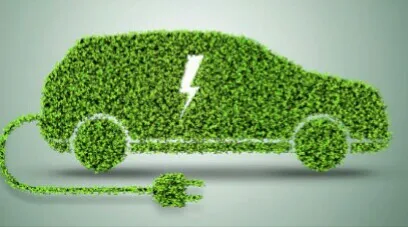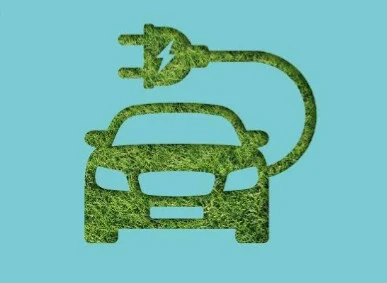Electric Vehicle
Iceland, known for its stunning natural landscapes and commitment to environmental sustainability, is embracing the electric vehicle (EV) revolution.
With its abundance of renewable energy sources and a strong dedication to reducing carbon emissions, Iceland is emerging as a leading force in promoting electric mobility.
In this article, we explore Iceland's journey toward sustainable transportation, the unique challenges and opportunities it faces, and the transformative impact of electric vehicles on the country's green aspirations.
Iceland's Electric Vehicle Journey
| Year | Key Event or Milestone | Impact |
|---|---|---|
| 2010 | Introduction of the Electric Vehicle Subsidy | Provided financial incentives for the purchase of electric vehicles, boosting sales. |
| 2013 | Launch of the "Electric Vehicle Roadmap" | Set ambitious targets for electric vehicle adoption and outlined strategies for achieving them. |
| 2015 | Expansion of the charging infrastructure | Increased the availability of charging stations nationwide, making electric vehicle ownership more convenient. |
| 2017 | Introduction of the "Electric Vehicle Tax" | Implemented a lower tax rate for electric vehicles, further incentivizing their purchase. |
| 2019 | Announcement of plans to ban the sale of new gasoline and diesel cars by 2030 | Reinforced Iceland's commitment to transitioning to electric vehicles. |
| 2020 | Launch of the "Electric Vehicle Charging Infrastructure Development Plan" | Focused on expanding the charging network, especially in rural areas. |
| 2021 | Introduction of the "Electric Vehicle Charging Fee" | Implemented a fee for charging electric vehicles in public spaces, aiming to ensure fair use of the infrastructure. |
| 2022 | Continued growth in electric vehicle sales | Iceland has seen a steady increase in the number of electric vehicles on the road. |
| 2023 | Launch of the "Electric Vehicle Innovation Program" | Supported research and development in electric vehicle technologies. |
Key Factors Contributing to Iceland's Progress:
- Government support: The Icelandic government has played a crucial role in promoting electric vehicle adoption through subsidies, tax incentives, and infrastructure development.
- Strong charging infrastructure: Iceland has invested in a robust charging network, making it easier for electric vehicle owners to charge their cars.
- Renewable energy resources: Iceland's abundant geothermal and hydropower resources provide a clean and sustainable source of electricity for electric vehicles.
- Environmental awareness: The country's commitment to sustainability and reducing emissions has driven interest in electric vehicles.
Challenges and Future Directions:
- Cost: While prices have decreased, electric vehicles still remain more expensive than traditional gasoline and diesel cars.
- Range anxiety: Concerns about the range of electric vehicles, especially in rural areas, may deter some potential buyers.
- Battery technology: Advancements in battery technology are needed to address range anxiety and reduce costs.
- Grid capacity: Ensuring that the electricity grid can handle the increased demand from electric vehicles is a crucial challenge.
Despite these challenges, Iceland is well-positioned to achieve its electric vehicle goals and become a leader in sustainable transportation.
Iceland Renewable Energy
Iceland's geographical advantages have positioned it as a global leader in renewable energy. The country harnesses its abundant geothermal and hydroelectric resources to generate clean and sustainable electricity.
This energy abundance has played a vital role in powering Iceland's electric vehicle revolution, as EVs rely on electricity for propulsion. With the majority of its energy coming from renewable sources, Iceland's electric vehicles have an inherently smaller carbon footprint compared to their fossil-fueled counterparts.
Overcoming Challenges
Iceland's unique challenges, such as its remote location and harsh climate, present both obstacles and opportunities for electric vehicle adoption. Despite the country's small population and limited driving distances, the spread-out nature of communities can make charging infrastructure development more challenging.
However, Iceland's government and private sector have recognized these challenges and are actively investing in expanding the charging network. They are strategically placing charging stations in urban areas, public spaces, shopping centers, and hotels, ensuring convenient access for EV owners.
Expanding Charging Infrastructure:
Iceland's commitment to building a robust charging infrastructure is a key driver of electric vehicle adoption. The country aims to develop a comprehensive network of fast-charging stations, especially along major highways, enabling long-distance travel and reducing range anxiety.
Furthermore, home charging solutions are being encouraged, making it convenient for EV owners to recharge their vehicles overnight. By prioritizing charging infrastructure expansion, Iceland ensures that electric vehicle ownership becomes a practical and sustainable choice for its residents and visitors alike.
Advantages of Electric Vehicle in Sweden
Environmental Advantages:
Electric vehicles offer significant environmental advantages in a country like Iceland.
As an island nation heavily reliant on imported fossil fuels for transportation, transitioning to electric vehicles can greatly reduce Iceland's carbon emissions and enhance air quality. EVs produce zero tailpipe emissions, reducing local pollution and contributing to Iceland's ambitious climate goals.
By aligning the adoption of electric vehicles with its renewable energy production, Iceland can showcase a holistic approach to sustainable mobility.
Economic Opportunities:
The shift toward electric vehicles also presents economic opportunities for Iceland. By embracing the EV market, the country can foster local innovation, job creation, and new industries. Icelandic companies are well-positioned to participate in the development and production of electric vehicle components, charging infrastructure, and associated technologies.
By nurturing this ecosystem, Iceland can stimulate economic growth while contributing to the global transition toward sustainable transportation.
Government Support and Incentives for the Electric Vehicle in Iceland
Iceland's government plays a crucial role in facilitating the transition to electric vehicles. Incentives, such as tax breaks and reduced registration fees, make EV ownership more attractive to consumers.
The government also supports fleet electrification programs, encouraging public agencies and businesses to adopt electric vehicles. By leading by example, the government showcases its commitment to sustainability and encourages others to follow suit.
Tax benefit for electric vehucle in Iceland
Iceland offered several tax benefits for electric vehicles (EVs) to encourage their adoption and reduce greenhouse gas emissions.
These tax benefits were designed to make electric vehicles more affordable and attractive to consumers. However, please note that tax policies may change over time, so it's essential to verify the current tax incentives from official sources.
Here are some of the tax benefits for electric vehicles in Sweden :
1. Exemption from Purchase Tax: Electric vehicles were exempt from the purchase tax, also known as the "new car tax" (Nybilsskatten). This tax exemption significantly reduced the upfront cost of buying an electric vehicle compared to conventional fossil fuel-powered vehicles.
2. Reduced Annual Vehicle Tax: Electric vehicles were subject to a reduced annual vehicle tax compared to traditional internal combustion engine vehicles. This reduced tax aimed to make electric vehicle ownership more cost-effective over the vehicle's lifetime.
3. Beneficial Company Car Taxation: Company car users enjoyed a lower taxable value for electric vehicles compared to traditional internal combustion engine vehicles. This incentive aimed to encourage companies and employees to opt for electric company cars.
4. Reduced Benefit-in-Kind Tax: Employees who were provided with an electric company car as a part of their employment package were subject to a lower benefit-in-kind tax. This tax reduction made electric company cars more attractive for employees and employers alike.
It's important to note that these tax benefits were subject to change based on government policies and priorities.
Conclusion Iceland's Drive Toward to Electric Vehicle
Iceland's journey toward sustainable mobility through the adoption of electric vehicles demonstrates the country's dedication to environmental stewardship and its resolve to combat climate change.
With its abundant renewable energy sources and supportive policies, Iceland is creating an ecosystem that nurtures electric vehicle adoption, boosts local innovation, and contributes to a greener future.
As Iceland continues to expand its charging infrastructure and incentivize EV ownership, it sets an inspiring example for other countries striving to embrace electric mobility and create a sustainable transportation system.


